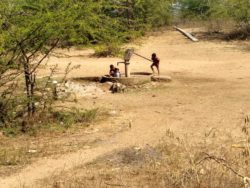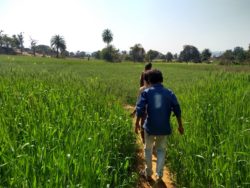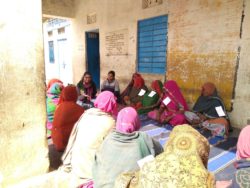About

Across India, many children in elementary schooling find themselves in ‘learning poverty’, and achievement of learning outcomes is disproportionately low among highly disadvantaged groups. In this context, the RAISE research project builds understandings of education accountability by investigating how the conditions and outcomes of children’s learning are contingent upon social relations.
Focussing on norms set out in India’s 2009 Right to Education Act around access, participation and monitoring, the study traces how these norms interact with, and are re-shaped by, competing ideas and conditions across and within four scales of the education system - family, school, community and the bureaucracy. The relational lens adopted by the RAISE research project reveals that the functionalist approach to educational accountability, which dominates policies and reform effort, tends to fragment and individualise responsibilities, and to detach actors from the contexts that condition their actions. These processes tend to reinforce rather than challenge existing power relations and hence to perpetuate the very inequalities that policies seek to change.
The four overarching study objectives are:
1. To develop a cross-scalar, relational approach for analysing systemic accountability to learners;
2. To trial its capacity to identify how divergences and convergences of accountability relations occur across scales;
3. To identify how conjunctures of accountability relations across scales affect the disadvantaged child’s learning; and
4. To identify which particular conjunctures of accountability relations produce positive learning provisions and outcomes.
The study’s innovative contributions include:
1. A mixed-method approach which first generates ethnographic insights into accountability relations and maps them across scales, then uses quantitative analysis of accountability and learning indicators to validate and scale up these insights;
2. A relational analysis that can offer new theoretical and empirical perspectives on how the systemic ‘gap’ between policy and practice is understood in education research;
3. An emergent theory of change that can provide basis for strategic action in the study contexts, with potential for significant systemic impact on improving accountability for learning outcomes at national level and beyond.
The RAISE research is led by Professor Caroline Dyer (University of Leeds) with Co-Is, Professor Arathi Sriprakash (University of Bristol), Dr Suraj Jacob and Dr Rahul Mukhopadyay (Azim Premji University, India), in partnership with the Vidya Bhawan Society in Udaipur.
Research Methodology


The study design follows a sequential mixed methods approach, beginning with qualitative investigation and then using a quantitative survey to validate and extend the qualitative analysis.
Qualitative Phase: 12 schools each from the rural and urban areas of Patna (Bihar) and Udaipur (Rajasthan), including government, private, NGO-run bridge school and Madrasas were purposively selected for qualitative study. Classroom observations of Class 1 and 5 were carried out to select students with high, medium and low participation in the classroom. In-depth, semi-structured interviews were conducted with parents of the selected students, teachers and principals. The focus was around the broad themes of access, participation and monitoring. Focus Group Discussions were also conducted in corresponding communities, and semi-structured interviews were held with bureaucrats at block and district levels.
Quantitative Phase: The subsequent quantitative surveys included 50 schools (rural and urban) in each of the sites, along with surveys of parents, key community representatives, and CRC representatives and (or) other frontline officials of educational bureaucracy. The schools for quantitative survey were selected through stratified random sampling to ensure adequate representation of government, private recognised, private non-recognised, Madrasas and NGO schools.
